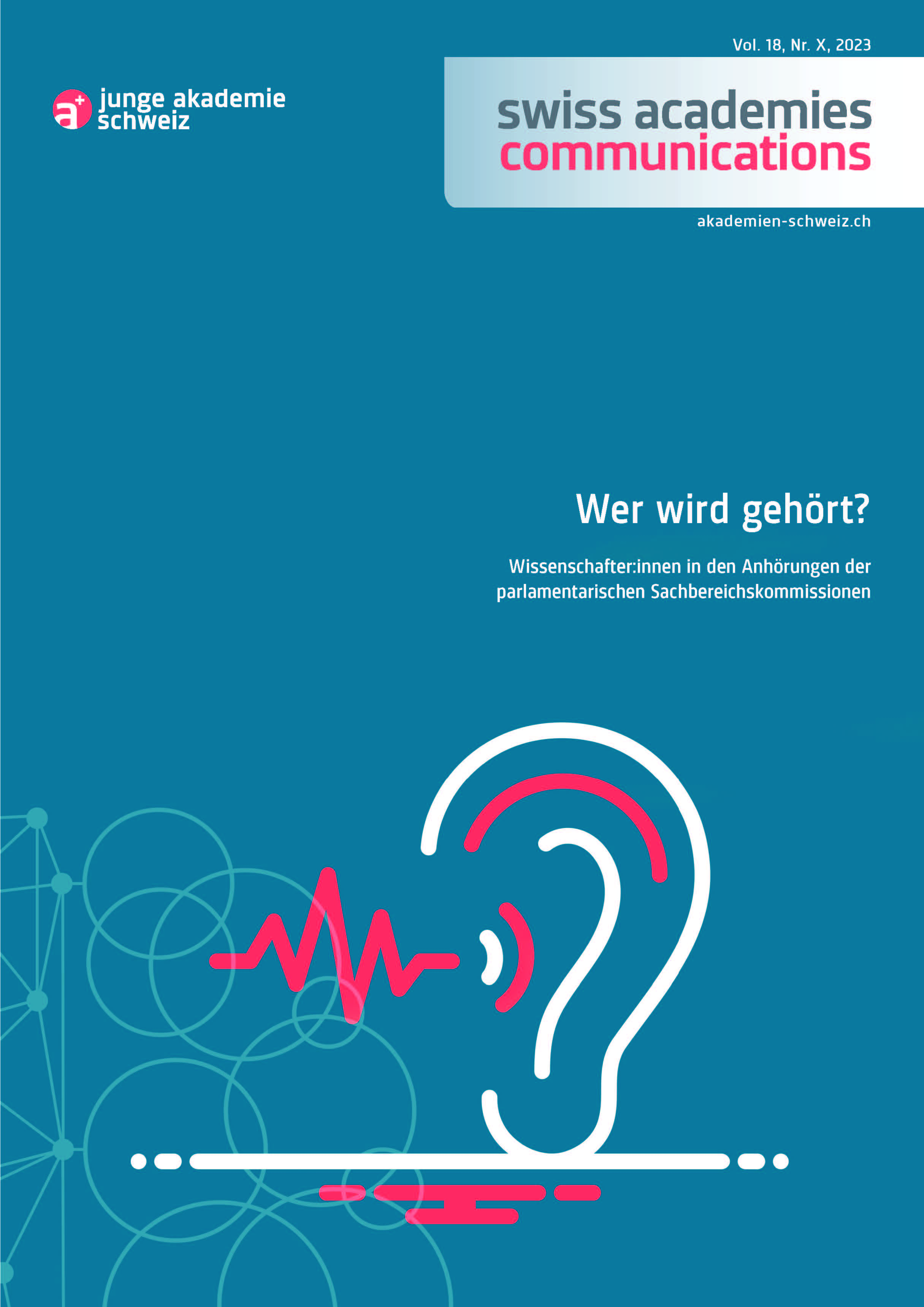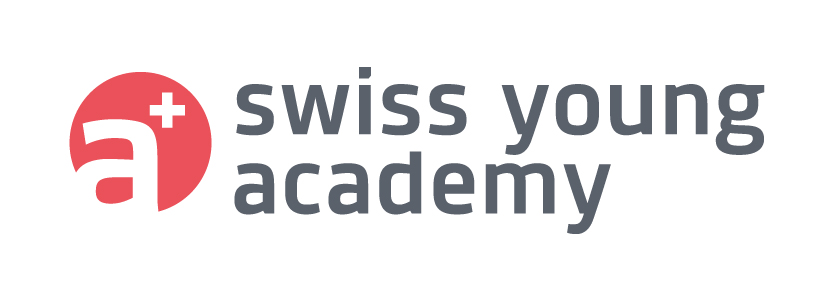Networking science.
Who Gets Heard? Selecting Scientific Experts in Swiss Legislative Processes

Background
The background of the project consists in findings that political scientists such as Dieter Freiburghaus revealed in previous case studies. Scientific experts are typically involved in two phases of the legislative process: in the first phase, i.e. at the problem definition stage, and at the end, in the implementation phase, when the solution does not appear to be satisfactory. However, at the second stage, when solutions are being developed and discussed, the voice of science seems to be heard less often.
Goals
The interdisciplinary project group of the Swiss Young Academy focused on parliamentary committees and held interviews with parliamentarians, members of the parliamentary services and scientific experts. The project members examined how parliamentary committees selected and held hearings with scientific experts, and they identified the main challenges that arose in this context. The goal of the project team was to assess the transparency, representativeness, and equality of access of the expert selection process, as well as possible obstacles and solutions for considering expertise from a variety of scientific disciplines.
At the end of the project in June 2023, the members published a synthesis of their findings in a white paper that is made available to a broader audience (see media release here).
The white paper can be downloaded from this webpage (see the link on the right-hand side). It is available in German and French. The paper’s executive summary is available in German, French, and English. An English translation of the white paper will soon be made available on this webpage.
Activities
The project examined how scientific experts are selected and heard by parliamentary committees. It shed light on the most important challenges in this process, including challenges that affect early career researchers. . Based on the results, concrete ideal scenarios were developed to show how future generations from different scientific fields can convey decision-relevant knowledge and the current state of research to parliamentary committees.
The project was supported by an advisory board composed of Prof. Marcel Tanner, President of the Swiss Academies of Arts and Sciences (until end of 2023) and Director Emeritus of the Swiss TPH, Dr. Peter Bieri, Member of the Swiss Council of States for the CVP from 1995-2015, President of TA-Swiss and Vice-President of the Swiss Academies of Arts and Sciences, and Prof. Barbara Haering, President of the Board of Directors of econcept AG, President of the Conseil d'Orientation Stratégique of the University of Geneva, Vice-President of the ETH Board and Member of the National Council from 1990-2007.
The interviews were conducted in 2021 and were analyzed in 2022 by the project group (Silvia Maier, Odile Ammann, Servan L. Grüninger, Darius Farman) and by Reja Wyss, project assistant and doctoral researcher at the University of Oxford.
Project Speakers
Project Members
Darius Farman
Servan Grüninger

